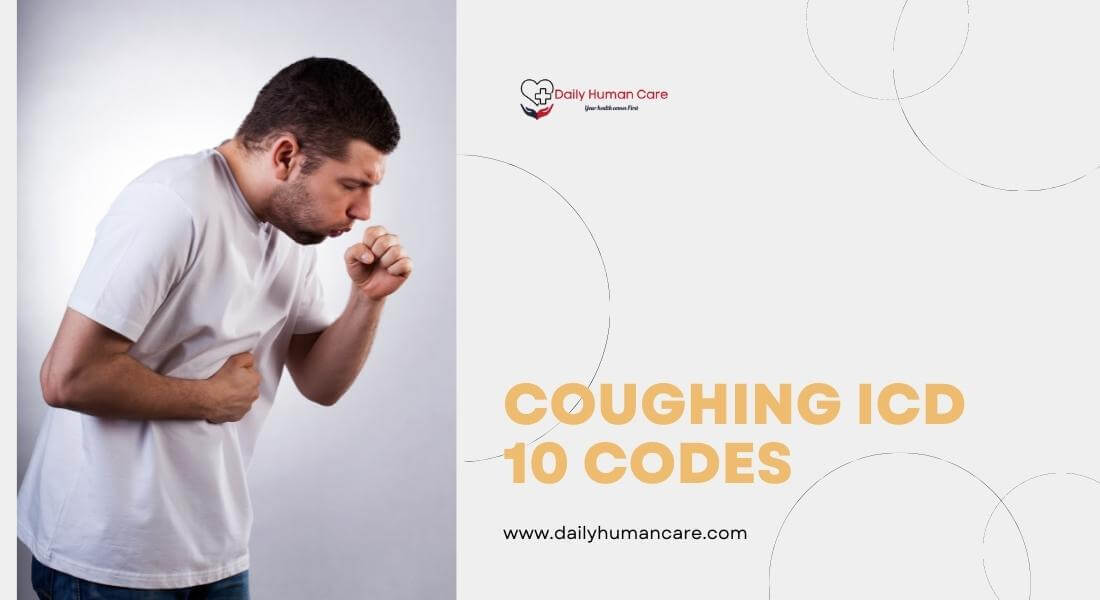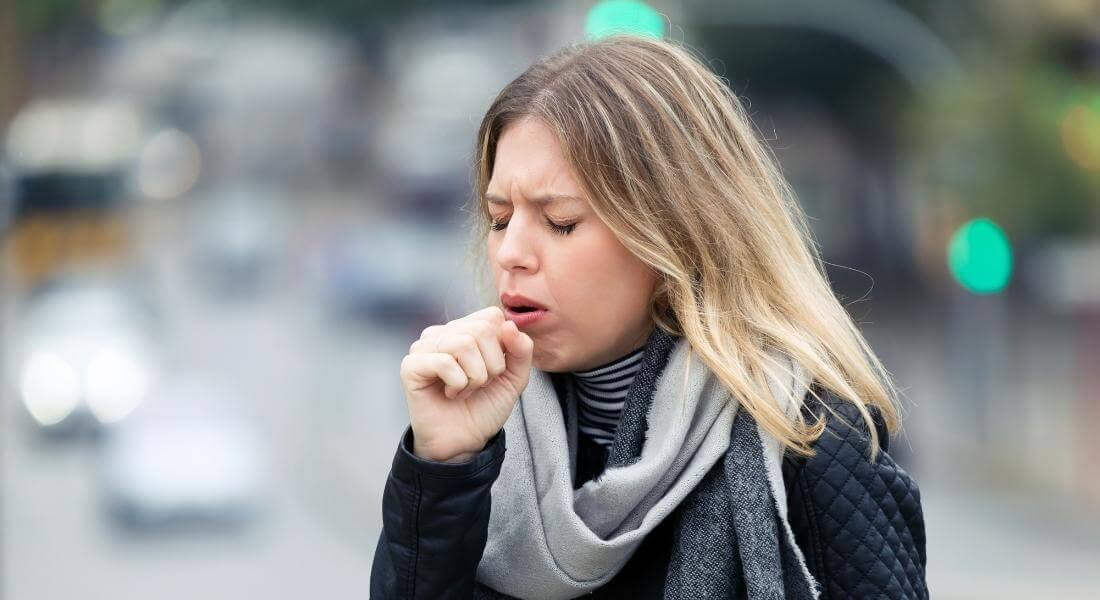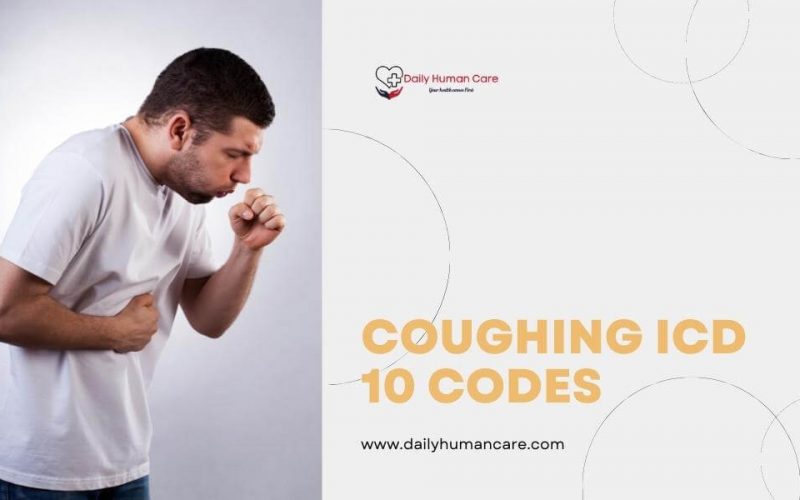this article by Daily human care is all about cough and the coughing ICD 10 codes. hope u will enjoy reading this article.
Table of Contents
Cough
A cough, also known as tussis, is a deliberate or involuntary act that clears foreign particles, bacteria, irritants, fluids, and mucus from the throat and breathing path; it is a fast ejection of air from the lungs. Coughing can be done consciously or as a reflex.
The occasional cough isn’t normally a major thing to cope with. As a matter of fact, most people don’t even realize they’re coughing until it’s too late. The majority of the time, a cough isn’t anything to worry about, but if it persists for an extended period of time, it’s something to keep an eye on. If you have any questions or concerns about your health, please contact Health Services. Coughing more frequently than usual can create pain or discomfort or any other symptom that causes you to worry about your cough.
Different Types of Coughs
When it comes to dealing with a cough, there is no one-size-fits-all treatment method. Before determining the origin of your cough, it’s crucial to know what type of cough you have. The most frequent forms of coughs, along with the symptoms they cause, are listed here.
Dry Cough
There is nothing coming up with the cough, therefore it is labeled “unproductive” that’s why it is called dry. It can happen at random or repeatedly, but it’s usually the mildest form of cough to have ever occurred. Coughing may cause problems with sleep, headaches, and even sore throats, although these are more often symptoms of the cough itself than of something more serious.
Tobacco smoke and other inhaled allergens and pollutants are common culprits in dry coughs. Aside from the normal cold or flu, dry coughs can be caused by allergies, acid reflux, drugs, and more. If you notice a persistent cough, it could be an indication of an impending respiratory illness like bronchitis or pneumonia.
Wet Cough
When you cough with a wet cough, you’re likely to generate some form of mucus. In order to avoid stomach pain or vomiting, you should try to expel or spit this mucus as soon as possible. Infections, such as a cold or the flu, are the most common cause of wet coughs, and they are your body’s way of clearing out the excess mucus that the infection has created. Even if you don’t experience any of the symptoms of an asthma attack, a wet cough is still a sign that something is wrong with your respiratory system. When you have COPD, you are more likely to have a wet cough, even when your lungs aren’t very inflamed.
Croup
Croup is more common in children than in adults, and the cough is characterized by a high-pitched barking sound. A croup cough is caused by a viral infection that causes the windpipe to enlarge and inflame, resulting in a distinctive sound. A hoarse voice, difficulty breathing, and even a fever are all common symptoms of croup. A doctor’s visit isn’t necessary for most cases of croup; however, you should take your child to the doctor if you notice your child is having trouble breathing. For croup, sitting in a hot steamy room and doing other things to remove inflammation and free up the airways is generally the best course of action.
Uncontrollable Coughing
The term “paroxysmal coughing” refers to bouts of uncontrollable, forceful, and painful coughing. Asthma, chronic obstructive pulmonary disease (COPD), TB, and pneumonia can all produce this type of coughing spells, as can whooping cough. These coughs are all distinct, but the most serious is whooping cough, which is marked by a strong inhalation that typically creates a “whoop” sound and quick, deep coughing that worsens at night. The uncontrollable coughing fits induced by whooping cough can lead to oxygen deprivation in those who are unable to recover their breath. Doctor’s visits are essential to overcoming and healing from your cough no matter what the cause of your uncontrollable coughing fits maybe.

How to Identify Which Type of Cough you have?
If you or your child is experiencing any of these signs and symptoms, it should be a little easier to figure out what is causing the cough. Coughs that are dry or moist are the simplest to distinguish. In order to distinguish between croup and whooping cough, you should pay attention to the various noises each cough produces.
When someone has a whooping cough, they make a “whoop” sound after the cough has stopped and they are taking in air, while croup coughs produce a barking sound. If you’re not sure what’s causing your child’s cough, you should take them to the doctor. It might be difficult to know whether to seek medical attention for a cough, but you can rest assured that we will never turn you away if you want to better your own or the health of others you care about, even if the cough is not serious.
Causes of Coughs
Coughing is meant to cleanse the airways of your body. To use that definition, coughing is a useful bodily function that occurs of its own accord. You cough because your body wants to clear your airways for you. It’s a natural reaction. As a result, it is important to examine all possible causes of distinct “types of cough.”
• Allergens & Irritants – Coughing can be caused by irritation of the throat or the sinuses. Irritation or an allergy isn’t a health issue, but rather your body’s mechanism of removing the allergen or irritant from your system. Things like pollen, dust, animal dander, and mold might cause coughing even if you aren’t sensitive to them. This can happen for a short amount of time or for several days. There are a wide variety of irritants, including smoke (tobacco or that from a grill or a fire), chemical fumes, fragrances, air fresheners, and more.
• Postnasal Drip – Mucus from a cold or allergies can induce this sort of cough, which can sound like either a dry or wet cough. Postnasal drip coughs are more common at night, and they might cause a tickling sensation in the back of the throat. As with previous coughs, you may also experience irritated eyes and more frequent sneezing.
• Asthma – A wheezing or rattling sound is the most prevalent sign of an asthmatic’s irritated airways. There is a risk that this will make coughing more difficult and potentially create breathing difficulties. Chest tightness, exhaustion, and shortness of breath are all classic symptoms of an asthma-type cough, which is particularly prominent at night or while exercising.
• Gastroesophageal Reflux Disease (GERD) – A dry, spasmodic cough may develop from acid reflux from the stomach into the esophagus. Chronic cough is a typical symptom of gastroesophageal reflux disease (GERD). Any time your cough grows worse, it could be an indication that you have gastroesophageal reflux disease (GERD).
• Chronic Obstructive Pulmonary Disease (COPD) – A persistent, hacking cough is the most common symptom. You’ll notice a lot of mucous, especially in the morning. In addition to smoking, other factors, such as air pollution, cooking fuels, or exposure to other chemicals or gases, can cause COPD. Other signs and symptoms you may experience during the day or as a result of physical exertion include shortness of breath, wheezing, exhaustion, and tightness in the chest.
• Medication-related Cough -In some cases, medicine might create a long-lasting cough. These include ACE inhibitors, beta-blockers, NSAIDs, and calcium channel blockers, which are all frequent drugs that may produce a cough. This sort of cough tends to be drier, and it can start as soon as a few weeks after starting the medicine.
• Pneumonia – In most cases, this cough begins as dry before transitioning to moist. A yellow, green, or reddish-brown mucus is frequently present, and it is usually extremely frequent. Fever, difficulty breathing, pain when inhaling deeply, chills, and other symptoms may be present when you get sick.
• Whooping Cough (Pertussis) – With a “whooping” sound when you inhale, this type of cough is particularly ominous-sounding. Watery eyes, a fever, a stuffy or runny nose, and other symptoms are possible. Antibiotics are commonly used to treat whooping cough.
Common causes of acute cough
- Cold
- An irritant that causes influenza (flu) is inhaled (such as smoke, dust, chemicals, or a foreign body)
- Pneumonia
- Whooping cough
Common causes of chronic cough
- Allergies
- Inflammatory lung disease
- Bronchitis
- Reflux disease (GERD)
- Post-nasal dripping
Cough Treatments
For each sort of cough, you’ll need a different remedy. Most coughs are neither serious nor severe, and the vast majority of them will go away on their own without any treatment. There are, however, a few options if you find the cough bothersome or unpleasant, or if you simply wish it to go gone sooner. While some coughs can be treated with over-the-counter medications, others necessitate the use of antibiotics or other medications. Before a treatment can be determined, the underlying cause of the cough must be diagnosed.
Depending on the type of cough, there is a wide range of options for cough medicine. Coughing can be made tolerable at home with a variety of home treatments.
- Consuming hot liquids such as tea, particularly when sweetened with honey
- Consuming water and other low-sugar beverages to stay hydrated
- Reducing inflammation by ingesting ginger.
- The use of lozenges and cough drops
- Making use of a humidifier or humidifier
- Cough suppressants and mucus thinners sold over the counter
- Clearing your sinuses with a saline rinse.
- Being in the shower and inhaling the steam from that shower is an enjoyable experience.
A simple at-home remedy for a cough is typically sufficient. It will alleviate the discomfort of a cough and help you get better more quickly. You should seek medical attention if your cough does not go away and you are unsure of when to do so.
Coughing ICD 10 Codes.
- For reimbursement purposes, R05 should not be utilized because it lacks detail, as there are other codes underneath it.
- After being into effect on the first of October of this year, ICD-10-CM R05 is a new 2022 ICD-10-CM code.
- American ICD-10-CM R05 may differ from different international variations of R05.
R05.1 Acute cough
R05.2 Subacute cough
R05.3 Chronic cough
R05.4 Cough syncope
R05.8 Other specified cough
R05.9 Cough, unspecified
Type 1 Excludes
- Bordetella pertussis-induced recurrent cough (A37.0)
- Coughing from smoking (J41.0)
Type 2 Excludes
- hemorrhagic cough (R04.2)
A back-reference annotation in the code above R05 may be applicable to R05. - R00-R99
Abnormal clinical or laboratory results that aren’t already classified as such.
Approximate Synonyms
- Chronic cough
- Cough syncope (fainting)
- Cough, persistent
- Paroxysmal cough
- Persistent cough
- Post-viral cough
- Tussive syncope
Clinical Information
A condition in which the thoracic cavity contracts spasmodically and often, causing the lungs to violently expel air and generally accompanied by a unique sound.
As the lungs begin to fill, a loud audible ejection of air from the lungs can be heard. It’s a defense mechanism designed to remove irritants and secretions from the trachea, bronchi, and/or lungs, or to prevent the inhalation of foreign objects.
When the thoracic cavity contracts suddenly and violently and is followed by a distinct sound and ejection of air from the lungs, this is known as thoracic dyspnea.
An instinctive cough helps keep your throat and airways free of debris. Even while coughing is a nuisance, it is actually beneficial to your health. There are acute and chronic coughs. Coughs that come on quickly and last for only a few weeks are known as acute coughs. When you have a cold or flu, you’re more likely to experience a severe cough. When a cough is chronic, it lasts for more than a week or two. Chronic cough can be caused by a variety of things.
- Asthma
- Allergies
- COPD (chronic obstructive pulmonary disease)
- GERD (gastroesophageal reflux disease)
- Tobacco use can cause throat problems, such as croup.
- Medications
Drinking water or using a steam shower or vaporizer to introduce steam into the air can ease coughing. Antihistamines may be more effective than non-prescription cough treatments if you have a cold or the flu. To avoid adverse effects, do not give cough medicine to children under the age of four. If you have a child that is over the age of 4, be careful and read the labels thoroughly.

Important questions about coughing ICD 10 Codes:
How do you code a cough?
2022 ICD-10-CM Diagnosis Code R05: Cough.
what is the ICD 10 code for cough?
Coughing ICD 10 Diagnosis Code R05: Cough.
what is the ICD 10 code for chronic cough?
2022 ICD-10-CM Diagnosis Code R05.3: Chronic cough
What is the ICD-10 code for productive cough?
Coughing ICD 10 code for productive cough is R05.4
What is the ICD 9 code for cough?
CD-9-CM 786.2was the ICD 9 code for cough, which was converted directly to the 2022 ICD-10-CM R05 Cough.
What type of cough is Covid?
There is a dry cough in the chest of most persons with COVID-19.
What does productive cough mean?
Productive coughing results in the production of phlegm or mucus (sputum). The mucus could have come from the nose or sinuses, or it could have been brought up from the lungs and flowed down the back of the throat. Coughs that are productive and clear mucus from the lungs are normally not to be suppressed.
What does acute cough mean?
Coughing on occasion is natural, but a persistent cough may be an indication of a medical concern. When a cough lasts for less than three weeks, it is referred to as “acute”. If it persists for more than eight weeks, it is deemed “chronic” (four weeks in children).
Also Read : https://dailyhumancare.com/dysphagia/



